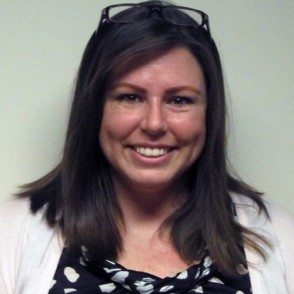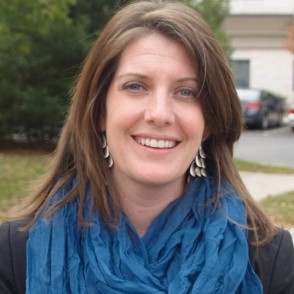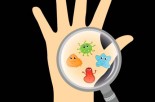Canceled Clients (4762)
Children categories

Train Your Body (438)
The show for fitness buffs or beginners. Expert guest from the American College of Sports Medicine (ACSM) discuss all areas of fitness, nutrition, athletics and sports medicine.
View items...
Staying Well (382)
RadioMD’s “talking” Health A-Z hosted by senior health correspondent, Melanie Cole, MS. Melanie interviews experts in the world of health, wellness, fitness and medicine.
View items...
Healthy Talk w/ Dr. Michael Smith (698)
Integrative physician, Michael A. Smith, MD is committed to providing listeners with the most current health information available.
View items...
Naturally Savvy (899)
Registered Holistic Nutritionist, Andrea Donsky and health expert Lisa Davis discuss their passion for living a natural, healthy lifestyle.
View items...
Eat Right Radio (48)
EatRight Radio, with experts from the Academy of Nutrition and Dietetics, discusses food and nutrition topics, healthy weight, allergies and health conditions, healthy aging, food safety and so much more. Give us 10-minutes and we'll give you the important information and expert advice from registered dietitian nutritionists to help you eat right, feel better, and live a healthier life. Hosted by Melanie Cole, MS.
View items...
Sharecare Radio (235)
Sharecare Radio, hosted by Sharecare’s own Dr. Darria Long Gillespie, SVP of Clinical Strategy at Sharecare, will appear live every Tuesday from 12 to 1 p.m. EST on RadioMD. Dr. Darria will break down the top health news of the week, pull in experts from around the country on a wide array of health topics and answer listeners’ live questions on all things health.
View items...
Wellness for Life (455)
On Wellness For Life Radio you will learn practical, easy-to implement tips to improve your life and start feeling better — the natural way.
View items...
The Wizard of Eyes (163)
Dr. Robert Abel Jr. talks about many of the important and unrecognized parts of our visual system which we so often take for granted. The show covers the usual common ocular disorders with an East/West approach to both prevention and therapy. The eye-brain connection is presented with information about memory retention, Alzheimer's, the myopia epidemic, and many more subjects. Dr. Abel discusses how the eye and vision are connected with remote parts of the body including your gut flora, musculoskeletal system, blood pressure, drugs and lifestyle. practical and simple health tips.
View items...
Code Delicious with Dr. Mike (135)
Code Delicious with Dr. Mike breaks all the rules. Unabashedly confronting the questions, concerns and conundrums that continually confuse both public and experts alike; Dr. Mike takes us on a tasty trip of inquiry.
View items...
CLEAN Food Network (98)
This show is a call to action for all the clean eating revolutionaries that care about their health and how and what they eat. Non-GMO, natural, organic . . . food the way nature intended. The clean food movement is huge and is growing exponentially. This companion program talks to experts in food preparation, healthcare, celebrities, and even those companies that care enough to provide the best, wholesome, organic foods and groceries.
View items...
Talk Healthy Today (213)
Looking to create your best self? Whether it’s good-for-you lifestyle hacks, smarter ways to supplement, or tasty tips to fuel optimal health, Talk Healthy Today brings you the latest research, tools, and common sense tips you need to get and stay healthy... starting today!
View items...
Be a Doer (17)
Be A Doer features master coach and TV personality John Abdo as he shares health and fitness tips aimed at getting you in shape – and keeping you there!
View items...The Power of Probiotics (3)
Probiotics is a major global industry. But like any industry, it had to have a beginning. Natasha Trenev is the daughter of an Eastern European family where the manufacturing of yogurt was a generational business. When Natasha emigrated to the US in the 1960’s, she brought with her 750 years of family experience with probiotics – and introduced the science (and the term itself) to her new country. Today, Natasha’s California-based Natren, Inc. is the recognized pioneer in probiotics and company founder Natasha Trenev has earned recognition as the Mother of Probiotics. Her more than 50 years of work in natural health is at the core of the unparalleled success of her company – and you will benefit from her depth of expertise in each and every episode of THE POWER OF PROBIOTICS.
Probiotics are live microrganisms that are commonly referred to as ‘friendly,’ ‘good’ or ‘healthy’ bacteria that function to help maintain the natural balance of organisms in the intestine. Throughout Natasha’s extensive work in the field of probiotics, she has always been amazed by how nature provides the very ‘good’ bacteria that can help overpower ‘bad’ bacteria to keep our digestive tracts functioning at peak performance. Properly cultivating friendly bacteria and ensuring their potency is at the core of the Natren Process. Natren is cited – by retailers, by the medical community and by consumers – as the best probiotic supplement available. Only Natren carefully chooses its probiotic cultures, formulates and manufactures its industry standard probiotics in its own plant and utilizes a specially-formulated oil matrix to protect probiotics bacteria to survive until they reach their destination in the upper small intestine. This is why only Natren is the most trusted probiotic supplement on the market. Truly, where other probiotic supplements promise – Natren Delivers.
To learn more about how probiotics can benefit your health, we are proud to introduce you to THE POWER OF PROBIOTICS with The Mother of Probiotics, Natasha Trenev.

Your Brain Health (24)
Noted Los Angeles-based neuroscientist and media personality Dr. Kristen Willeumier launches Your Brain Health with Dr. Kristen Willeumier, a podcast series that explores the latest news and information in the burgeoning science of brain health.
View items...Additional Info
- Segment Number 3
- Audio File centra_health/1503ct3c.mp3
- Doctors Smith, Ryan
- Featured Speaker Ryan Smith, MA
- Guest Bio Ryan Smith, M.A., is a resident mental health professional under supervision for licensure with Centra Child & Adolescent Acute Psychiatric Program. She obtained her B.S. degree in Psychology from Virginia Tech and an M.A. from Liberty University in Professional Counseling. She has multiple years of experience working with children and teens, specifically the last three in the field of mental health. Earlier this year she was nominated by her peers and won an award for Mental Health Professional of the Year.
-
Transcription
Bill Klaproth (Host): No one wants to talk to their kids about depression and suicide, but suicide is a preventable mental health problem, and awareness and action are the keys. So how do you start those conversations? What do you do for a child who needs help? With us is Ms. Ryan Smith, a resident mental health professional under supervision for licensure with Centra Child and Adolescent Acute Psychiatric Program. And earlier this year, she was nominated by her peers and won an award for Mental Health Professional of the Year. First off, Ms. Smith, congratulations.
Ms. Ryan Smith (Guest): Thank you so much.
Bill: Let me ask you this. How do we start this conversation about suicide and prevention?
Ms. Smith: Well, as you mentioned, this is preventable. It is the third leading cause of death for young people ages 10 to 24. We all talk to our kids about wearing a seatbelt or not using drugs and alcohol, and this is just as much as a risk as that is. Most people are uncomfortable having this discussion. It’s taboo in our culture to talk about death, oftentimes with the victims blamed or referred to as possibly selfish or weak. And as a result, people don’t discuss suicide openly, which is really tragic. If we talk about it, we bring light to the issue, and we can help someone get help.
Bill: It is a difficult conversation to have, that’s for sure. Nobody really wants to talk about it, but it is something that should be talked about. Thanks for bringing that up to us. Is the root cause of suicide, is it all stemmed from depression? Is that where it starts?
Ms. Smith: Well, that is one of the factors. There can be other contributing factors as well. For example, there is a family history of suicide or other mental health issues, or often, exposure to suicidal behavior in others, such as a classmate or a friend. It can lead someone to believe that it’s now an option for them as well if they’re going through a rough time. Also, family violence, including physical or social abuse; family stressors, such as increasing financial worries; stressful life events, like possibly the incarceration of a parent or sibling. We’re seeing an increase of kids asking for help that are dealing with things in school like bullying or questioning their sexual identity, or even just not coping well with increased pressures at school. Kids today have tremendous academic pressures on them, athletic pressures on them. I work with children. It blew my mind. They’re holding down 40-hour a week jobs on top of school and sports. And when they don’t have good coping skills, when they don’t have the life experiences to deal with all these stressors, sometimes it gets to be too much, and it can really be overwhelming for them.
Bill: For a parent, how do you deal with all of these stressors and anxieties and help your kid get through them?
Ms. Smith: Well, that’s an excellent question. First and foremost, understand that having a conversation about suicide is not going to give your kid the idea that it’s an option. In actuality, discussing suicide opens up communication, and it lets your child know they can come to you with any issues that they have. You’re going to want to look for signs that you might need to get your child help if you’re seeing an increase of symptoms such as depression or mood swings or your child starts experimenting with substances like marijuana or alcohol, or even prescription drugs. That’s increasing as well. If your child is isolating, withdrawing, if they start to make statements about feeling hopeless, helpless, or that they’re trapped or they’re suffering; or oftentimes, children think they might be a burden to others, if they make comments like that. Also, if their school performance suddenly shifts or they increase in reckless or impulsive behavior, it’s definitely going to be important to talk to your child and seek some help for them and some support for them.
Bill: There are everyday trials and tribulations of being a child. I’m worried about a test. I’m worried about making this soccer game. I’m worried about this. I’m worried about that. Is there a period of, like, “Boy, this has been going on for a month now. Now I should worry”?
Ms. Smith: That’s a good question. Absolutely. Teenage years especially can have a lot of ups and downs. Some of that is going to be normal. Kids take the hard time to come through it and grow because of it. But if you were seeing a sustained state in your child that’s lasting for a couple of weeks, a real shift that your child who was once really involved with the family and now is irritable or agitated and is isolating in their room for more than a day or two, it’s going to be important to at least check in with their primary care doctor and see if some more help beyond that with maybe a psychiatrist, a psychologist, or a therapist is needed.
Bill: If a child is diagnosed with depression, what are the usual treatment options?
Ms. Smith: Well, every case is different, and as a therapist, I work with a team of nurses, doctors, counselors, and we review every single child as an individual and try to determine what’s going on in their life that might be most helpful for them. For a lot of children, it might mean starting on a mild antidepressant or another medication that a medical doctor feels is helpful to them. We couple that with therapy, where they are learning how to express themselves, build family relationships, improve communication, and most importantly, work on positive healthy coping skills. When we get depressed, it’s perfectly normal, perfectly human to want to isolate and withdraw, but we have to find a way to fight that and to push ourselves to interact with others again, to get outside, to exercise. And that’s what therapy can help your child with, to rely on these healthier coping skills instead of the default withdrawing, which can actually induce depression even further.
Bill: With those steps then, what is the long-term outlook then? Do I use the word “cured”? Or is this something that is ongoing throughout this child’s life, or is it a case-by-case basis?
Ms. Smith: Well, I personally believe that every single child has within them the ability to work through this and grow because of it. It may be something that some children fight with a little bit longer or have a more lasting struggle—again, depending on their own situation. But usually, if we can get children potentially medication or the therapy that they need and also the resources within their family and in their community, it’s treatable and the outcome is much better.
Bill: In our last 30 seconds here, what if it’s the parent that’s causing the strife, the anxiety, the worry, the depression? Is that up to a different family member or a friend to try to step in? What happens in that situation?
Ms. Smith: Sure. Well, it’s very seldom the child alone who is going through something. It’s usually the child is indicative of what’s going on in the family in general, and we can work to get the whole family support through either family therapy or connecting the parent with resources in the community as well to help them with whatever they might be struggling with, should it be an addiction or their own history of abuse.
Bill: That makes sense. So taking care of the whole family.
Ms. Smith: Yes, absolutely.
Bill: Absolutely. Ms. Smith, thanks so much. Why should people come to Centra for their children’s healthcare needs?
Ms. Smith: Well, I feel we’re a great team. We’re well experienced and help the children and their families in this community, and we always look forward to serving others.
Bill: Ms. Smith, thanks again so much for your time today. For more information, please visit centrahealth.com. That’s centrahealth.com. This is Centra Healthy Radio. I’m Bill Klaproth. Thanks for listening. - Hosts Bill Klaproth
Additional Info
- Segment Number 2
- Audio File centra_health/1503ct3b.mp3
- Doctors Evans, Bailey
- Featured Speaker Bailey Evans, M.Ed., LPC
- Guest Bio Bailey Evans, M.Ed., LPC, is a licensed mental health professional with Centra Bridges Treatment Center. She is trained in TF-CBT (Trauma-Focused Cognitive Behavioral Therapy) and is pursuing national certification.
-
Transcription
Bill Klaproth (Host): Self-esteem is the confidence in one’s own worth and personal value. A child’s healthy self-esteem provides the capability to face life’s challenges positively and more successfully. How can a parent help build their child’s self-esteem and ability to make healthy decisions? Well, with us is Mrs. Bailey Evans, a licensed mental health professional with Centra Bridges Treatment Center. Mrs. Evans, thanks so much for being on with us. When I think of self-esteem, I wonder, is this a nature or nurture question? Are you born wired for positive self-esteem, or does it lie solely in a child’s upbringing and environment they’re raised in?
Mrs. Bailey Evans (Guest): That’s a great question, and of course, what the research shows is there’s actually a combination of factors, nature and nurture. Some children’s temperament tend to be more on the anxious side or they are more easily disregulated than other children. But certainly, the nurture that we provide them helps children develop a healthier self-esteem no matter what their innate temperament is.
Bill: If it’s inside everybody and it’s the parents’ job to develop that and get it out of them, what are the steps then to help our kids achieve a healthy self-esteem?
Mrs. Evans: Okay, that’s a great question, too. When I think about healthy self-esteem, there is a wonderful guru on the topic. His name is Dr. Ben Bissell, and he actually talks about 10 steps to help build your child’s self-esteem. I’ll quickly just take you through those steps because I think they are tried and true and very sound and very wise. The first one is that we’re going to give our children a good name. And so when we face challenges with our children, instead of calling them things like bullheaded or stubborn, we’re calling to call them strong-willed and independent. We’re going to give them a good ear and we’re going to really listen intently to the things that they say. When we give our children permission to talk and that we’re listening, then they’re going to feel more readily able to come to us when they’re having difficulties, and then that in turn also makes it easier for them to accept our influence as parents and to know that they can come to us not only with the small stuff but with the big things, too. We’re going to help our children make decisions, and so being able to provide forced choices for them at times. You do not give them just carte blanche access to decide everything that they want, but to really give them and help make choices alongside them. This also means not doing things for them. We’ve heard the “term helicopter” parent, and that’s sort of like a parent who is hovering around and sort of fixing things for their children. But instead, helping our children make decisions so that will boost their esteem and their ability to really make healthy choices so they’re not looking to us to make the decisions for them that they feel capable of doing so. That’s going to be particularly important as they move into adolescence with their peer group. We’re also going to give them permission for their feelings, so whatever feelings they’re having are okay. We always want to send that message. Feelings are okay. Not all behaviors are okay, however. It’s okay to be angry; it’s not okay to hit and it’s not okay to tear up your room, things of that nature. We’re also going to give them rules. Children thrive in environments where there is structure and limits and they know where the boundaries are. Even though some children push those boundaries and limits, the rules are truly what sends them a message that we love you and care for you and are willing to keep you safe. We’re going to do things like give our children hugs or physical touch that they feel comfortable with and we can feel comfortable giving them in a very nurturing way. Permission to laugh and play, just be kids, which is important. We’re also going to tell our children the truth. That’s another gift that we give them, and permission to make mistakes as well. Again, that’s where the helicopter parenting comes in and we want to really be careful about that. Even though it might be hard for us as parents, sometimes we want to make sure that we let our children sit in their mistakes because that’s really how they learn. So not fixing it for them but being alongside them and being able to say, “This is a bummer. What can I do to help? Or what do you think you should do about that?” Then the last gift we’re going to give our children is freedom. And possibly for parents, that’s the hardest one as our children grow and move into developmental stages where freedom is certainly appropriate.
Bill: Well, those are great steps. And what’s great about this format is anybody listening, you can just rewind and rehear those and take notes on those because those are excellent steps. Thank you for sharing those with us. Then, those are great steps to take. How do you tell if your child has low self-esteem?
Mrs. Evans: Okay, so when we’re looking at children and we’re wondering about how they are doing, we look at things like are they appearing more anxious. Are they having trouble sleeping? Are they very teary? Are they more irritable? Are they having difficulty managing their emotional regulation on a pretty consistent basis? Are they saying things that are unusual such as “I hate school” and “I don’t want to go to school” or “I’m stupid” or “nobody likes me”? And just watching how they interact with their peers. Do they seem as though they’re willing to take a chance and get into a social situation? Are they more standoffish? If those things are different from how their usual presentation is, then we want to take note of those things and pay attention as parents and check them out. The general rule of thumb is kids are kind of up and down. If symptoms that are of concern to parents persist for two weeks or more, that’s when you really want to possibly seek a professional consultation.
Bill: That would be the next step then is seeking professional consultation, or can a parent reverse low self-esteem with the steps that you just talked about earlier?
Mrs. Evans: Right. Certainly, those things go hand in hand, so parents do have the ability to help boost their child’s self-esteem by looking back and saying, “Hmm, what could I do differently?” That’s always sort of the first course of action to say, “Is there something that’s going on? Does this seem like this is their little pattern?” and they kind of come out of this on their own typically. Certainly, if there are symptoms that are of concern that persist for two weeks or more, then you may want to seek a professional opinion.
Bill: Then what happens then? What is the treatment for low self-esteem?
Mrs. Evans: For low self-esteem, typically those children present in treatment as anxious, and so we would be looking for possibly a mood disorder, maybe some signs and symptoms of depression in a small child to a teenager. Also, looking at symptoms of anxiety and trying to help the child feel more confident and competent in handling whatever the situation that has been the trigger to these symptoms is, whether it’s school-related or there’s something going on in the family. Or it could be that they’re interpreting messages that other people are giving them inaccurately, and so they are internalizing and feeling as though instead of making a mistake, that they are a mistake. We certainly want to identify if it’s situational or if there is something going on with their thoughts and more internalized so that we’ll know what the proper course of treatment will be.
Bill: Usually, how effective is treatment? What’s the long-term look for a child that has low self-esteem?
Mrs. Evans: I think it really sort of depends on all of the factors that are in place. Children often go through dips where they don’t feel as confident or as competent and may look more anxious or depressed, and it’s important to see what their whole support network is like. Let’s say you’ve got really good, supportive parents who are willing to change a few things about maybe the way they’re interacting or talking to the child, supporting the child, then the prognosis is very good. If you’re working with a child who is in a chronic state of disappointment for a number of reasons, such as they have an undiagnosed learning disability and they’re not achieving well in school, and then they are living in a family that’s not successfully able to meet their needs or there is an abusive situation, then the prognosis isn’t as good unless some of those factors can be identified and changed.
Bill: I would imagine trying to teach them strategies that they can use throughout their life would be beneficial as well as they grow into an adult.
Mrs. Evans: Absolutely. That’s part of what we would do if we would work on full coping strategies such as diaphragmatic control of the breathing. We would work on progressive muscle relaxation, which is where you teach your body to relax so that you can more adequately assess a situation and use the context clues to see is this something really to be upset about or not. Then also some more cognitive type strategies where you help them identify actually what the problematic thought is that they’re having, what feeling has been associated with that thought and what behavior, which could be a behavior that’s getting them into trouble, maybe not, then how to effectively replace those in a healthier, more adaptive way, then to also identify possibly what thought traps they’re falling into such as mindreading—so believing that they know what another person is thinking simply by looking at them—and how to challenge and replace that so that they can feel more competent and confident in social situations.
Bill: Great advice. Excellent information. Mrs. Evans, thank you so much. I really appreciate your time today. Can you tell us why people should come to Centra for their children’s health needs?
Mrs. Evans: Centra offers a wide array of services, including an outpatient. We also have private day schools, psychiatric care, which are both inpatient units. Also, we have long-term residential care. We have wonderful psychiatrists who provide medication management services and outpatient counseling as well. We also have substance abuse services. I think just because of the wide array of services that we provide and the quality of the service that we offer that Centra is a great choice for people in our community.
Bill: Absolutely. Mrs. Evans, thanks again, so much. I really appreciate your time today. For more information, please visit centrahealth.com. That’s centrahealth.com. This is Centra Healthy Radio. I’m Bill Klaproth. Thanks for listening. - Hosts Bill Klaproth
Additional Info
- Segment Number 5
- Audio File wellness_for_life/1504wl5e.mp3
- Featured Speaker Susanne Bennett, DC
- Guest Website https://drsusanne.leadpages.net/essentialnutrients101/
- Length (mins) 10
- Waiver Received No
- Host Susanne Bennett, DC
Additional Info
- Segment Number 4
- Audio File wellness_for_life/1504wl5d.mp3
- Featured Speaker Susan Smith Jones, PhD
- Guest Website Susan Smith Jones
-
Guest Bio
 As a Behavioral & Transformational Specialist, Dr. Susan helps people lose weight and get fit, heal their bodies, create success, and live their dreams. And as a much sought-after motivational speaker, wellness consultant, talk show guest, and holistic lifestyle coach extraordinaire, Susan travels throughout the U.S. and internationally working with Fortune 500 companies; community, spiritual, and women's groups; corporations and businesses; and with families and special individual clients. Susan shares her wealth of knowledge and expertise on how to live successfully and create your best life in body, mind, and spirit. A guest on 2,500+ radio and TV shows, Susan always motivates and inspires the audiences. She's also written over 2,000 articles published in magazines and journals worldwide on all aspects of holistic health.
As a Behavioral & Transformational Specialist, Dr. Susan helps people lose weight and get fit, heal their bodies, create success, and live their dreams. And as a much sought-after motivational speaker, wellness consultant, talk show guest, and holistic lifestyle coach extraordinaire, Susan travels throughout the U.S. and internationally working with Fortune 500 companies; community, spiritual, and women's groups; corporations and businesses; and with families and special individual clients. Susan shares her wealth of knowledge and expertise on how to live successfully and create your best life in body, mind, and spirit. A guest on 2,500+ radio and TV shows, Susan always motivates and inspires the audiences. She's also written over 2,000 articles published in magazines and journals worldwide on all aspects of holistic health.
- Length (mins) 10
- Waiver Received No
- Host Susanne Bennett, DC
Additional Info
- Segment Number 3
- Audio File wellness_for_life/1504wl5c.mp3
- Featured Speaker Susan Smith Jones, PhD
- Guest Website Susan Smith Jones
-
Guest Bio
 As a Behavioral & Transformational Specialist, Dr. Susan Smith Jones helps people lose weight and get fit, heal their bodies, create success, and live their dreams. And as a much sought-after motivational speaker, wellness consultant, talk show guest, and holistic lifestyle coach extraordinaire, Susan travels throughout the U.S. and internationally working with Fortune 500 companies; community, spiritual, and women's groups; corporations and businesses; and with families and special individual clients. Susan shares her wealth of knowledge and expertise on how to live successfully and create your best life in body, mind, and spirit. A guest on 2,500+ radio and TV shows, Susan always motivates and inspires the audiences. She's also written over 2,000 articles published in magazines and journals worldwide on all aspects of holistic health.
As a Behavioral & Transformational Specialist, Dr. Susan Smith Jones helps people lose weight and get fit, heal their bodies, create success, and live their dreams. And as a much sought-after motivational speaker, wellness consultant, talk show guest, and holistic lifestyle coach extraordinaire, Susan travels throughout the U.S. and internationally working with Fortune 500 companies; community, spiritual, and women's groups; corporations and businesses; and with families and special individual clients. Susan shares her wealth of knowledge and expertise on how to live successfully and create your best life in body, mind, and spirit. A guest on 2,500+ radio and TV shows, Susan always motivates and inspires the audiences. She's also written over 2,000 articles published in magazines and journals worldwide on all aspects of holistic health.
-
Transcription
RadioMD Presents: Wellness for Life Radio | Original Air Date: Friday, January 23, 2015
Hosts: Dr. Susanne Bennett, DC
Guest: Susan Smith Jones, PhD
Dr. Susanne: A healthy weight is so important to us. Not just because we feel better about ourselves aesthetically, but it keeps us healthy and out of the danger zones of so many chronic diseases. My next guest is here to explain how we may be overlooking the key to weight loss, our metabolism. Please welcome to the show, leading holistic educator and author Dr. Susan Smith Jones. Dr Jones, please share with us why extra weight is so dangerous to our body.
Dr. Susan: Gosh, there are so many problems. By the way, Hi, Dr. Susan. There are so many problems that go hand in hand when you’re carrying extra weight or you are obese. From heart disease, certain cancers, high cholesterol, high blood pressure, osteoarthritis, gout, stroke, sleep disorders, to diabetes, just to name a few. I’m a very positive person; I like to look at the glass as half-full. So to put it in a more positive way, even losing a little weight will significantly improve your health and well being.
Dr. Susanne: I totally agree with that. Once you start going, your body really feels the potential of getting to that level of optimal health and wellness. What is metabolism? What does that really mean? Can you share with us the definition of what that really means?
Dr. Susan: Yes, we’ll go over metabolism 101. Keep in mind that the control mechanism for obesity is not diet; it is muscle metabolism. Your basal metabolic rate is the rate in which your body utilizes energy. In other words, how efficient your body burns calories. When your metabolism is higher you burn more fat and you have an easier time losing weight, losing fat, and maintaining your ideal body weight. You can feed your body and muscles the best food and vitamin supplements, but if exercise is not part of your plan then you won’t burn off all of those calories in the food. As you age, if you don’t continue to keep your muscles exercised, your metabolism slows down and you will gain weight much more easily than you did when you were young. Exercise is the key to controlling metabolism. To be more precise, you need aerobic exercise, like a brisk walk, to burn the fat out of your muscles then you need to add strength training, weight lifting, whatever you call it, to build up your muscle which, in turn, increases metabolism.
Dr. Susanne: I’m totally a true believer in making sure that your muscle mass is at its peak. You don’t have to be huge, everyone. You don’t have to be bodybuilders. We need to maintain muscle mass because there is a little organelle called mitochondria. I call it the mighty mito. The mitochondria are specifically needed for fat burning. I know that aerobic exercise is awesome, but I really enjoy burst training, which is called interval training, because you get to burn fat even after you’ve stopped exercising. You know what I’m talking about, right Dr. Susan?
Dr. Susan: Absolutely. If you’re walking or hiking or riding your bike, you just pick something a little farther ahead of you. If I’m hiking, like I did yesterday morning, I’ll pick an oak tree up in the hills. I’ll go as quickly as I can up to that oak tree for the short burst of getting winded. When you do this, you are forcing your body to recover under stress; in other words, while you continue to exercise. When I reach that oak tree I don’t stop, I keep moving. The fat burning enzymes are realizing that not only do they need to grow when you are doing regular aerobic activity, but they need to grow faster. When you put in these 4, 5, or 6 bursts of getting winded in your exercise routine, you will find that the weight will melt away quicker.
Dr. Susanne: Right, Right. Melting the fat away is what everyone wants to do. We are all in to making sure that we do that. Of course sleep has a lot to do with increasing metabolism. I don’t think people know that deep sleep will actually adjust your metabolic rate. You even burn fat during sleep, isn’t that right?
Dr. Susan: Yes, and it is crucial to get a good 7-8 hours a night. Research shows that when you skimp on sleep it interferes with your body’s ability to process carbs that leads to elevated blood sugar levels and an increased tendency to store calories as fat. That’s because when you’re sleep deprived you body produces more of the stress hormone cortisol which sets this chain reaction in motion. To take it a step further, keep in mind that chronically getting too little sleep, I don’t mean 2-3 times a month but I’m saying night to night, makes you hungry; especially for foods that aren’t good for you and primes your body to hold on to all of the calories you eat. You’ve got to make getting good sleep non-negotiable if you want to lose weight, keep it off, and be vibrantly healthy.
Dr. Susanne: That’s right. Some of us out there, some of the listeners, actually might have injuries in their knees, in their legs. How do these individuals, what do you suggest for increasing aerobic activity for people who are not ambulatory with their legs. Maybe they have an ankle sprain and can’t walk. What can they do?
Dr. Susan: Let’s say you can’t use your ankles or your legs, and let’s say that you have a stationary bike at home. They have those bikes where you can use your arms on the pedals and go around and around and around. You can do that. I’m also a big believer in taking infra-red saunas because a session in an infra-red sauna, and it’s great to have one in your home, is the equivalent of having a 2-3 mile jog in terms of what it does to your cardio vascular system. That’s a way of burning calories without getting exercise in. There are things you can do. You can sit, even when you’re driving, and tighten your core, release, and tighten your core. You can take dumbbells or bottles of water and you can do arm exercises.
The thing people need to realize is that this is magical and it has to do with muscle. Muscle burns fat, it’s that simple. When you do the right kind of strength training it increases muscle tone, it alters body chemistry, and increases your metabolic rate. More muscles in your body, more lean muscle tissue, means a faster metabolism and this is what is so important for everyone get. If you increase the muscle on your body, and like you said we’re not talking about body building muscles, we’re talking about just more lean muscle tissue. If you put 10 extra pound of muscle on your body, you will burn approximately 500 more calories a day. You’d have to job 6 miles a day, 7 days a week, to burn the same number of calories. With 10 extra pounds of muscle you burn a pound of fat in a week, 52 pounds in a year.
Dr. Susanne: That’s a great way of looking at it. I’ve always believed that we don’t want to become skinny fat people. What that means is that you have too much fat and you lose muscle. With a lot of these weight loss programs, you end up becoming skinny fat. You might look good on the outside but you don’t have that quality, strong muscle that’s going to increase your body. I’m really a big believer in just moving. If you can’t walk, if you have issues, then just move your upper body. Just moving in itself will really enhance the metabolism and the sweating mechanisms.
Thank you so much Dr. Susan, for joining us today. I really appreciate all of the info you’ve talked about today, especially what metabolism is all about. Dr. Susan’s weight loss tips, if you want to see those and she has so many self help books, please go to think link on my Wellness for Life show page on RadioMD. Until next time, this is Dr. Susanne Bennett sharing my natural strategies for ultimate health and wellness right here on RadioMD. Stay well everyone! - Length (mins) 10
- Waiver Received No
- Host Susanne Bennett, DC
Additional Info
- Segment Number 2
- Audio File wellness_for_life/1504wl5b.mp3
- Featured Speaker Raphael Kellman, MD
- Guest Website Raphael Kellman
- Guest Facebook Account faceebook.com/drraphaelkellman
- Guest Twitter Account @doctorKellman
-
Guest Bio
 Dr. Raphael Kellman, MD, author of The Microbiome Diet, is a pioneer in functional medicine who has a holistic and visionary approach to healing. In 17 years of practice, he has treated more than 40,000 patients, many of whom have come to him from all over the world and after suffering without help for years. Dr. Kellman is driven by his desire to alleviate suffering and to help people regain health based on a new vision and understanding of healing and the causes of disease. As a doctor trained in internal medicine at the Albert Einstein College of Medicine in New York, Dr. Kellman uses the latest drugs and technology to treat specific diseases but his approach to medicine is patient- centered and holistic. He focuses on the complex interaction of systems — not just the disease but on you as a whole person who is greater than the sum of your parts.
Dr. Raphael Kellman, MD, author of The Microbiome Diet, is a pioneer in functional medicine who has a holistic and visionary approach to healing. In 17 years of practice, he has treated more than 40,000 patients, many of whom have come to him from all over the world and after suffering without help for years. Dr. Kellman is driven by his desire to alleviate suffering and to help people regain health based on a new vision and understanding of healing and the causes of disease. As a doctor trained in internal medicine at the Albert Einstein College of Medicine in New York, Dr. Kellman uses the latest drugs and technology to treat specific diseases but his approach to medicine is patient- centered and holistic. He focuses on the complex interaction of systems — not just the disease but on you as a whole person who is greater than the sum of your parts.
Dr. Kellman’s treatments are informed by his background in the philosophy of science, and administered with compassion and kindness. Drawing on the latest research, he addresses your biochemistry, metabolism, hormones, genetics, environment, emotions, and life circumstances to help you achieve optimal health. Dr. Kellman attended received post-graduate training in internal medicine at Beth Israel Hospital, Lenox Hill Hospital, and St. John’s Hospital, and conducted Cancer research at Sloan Kettering Memorial Hospital. He serves as Holistic Medical Director for Health Check in Bay Ridge, and Queens, and Medical Director for the New York Center for Addiction Treatment Services. He is also the author of three books included, The Microbiome Diet, Gut Reactions, and Matrix Healing. - Length (mins) 10
- Waiver Received No
- Host Susanne Bennett, DC
Additional Info
- Segment Number 1
- Audio File wellness_for_life/1504wl5a.mp3
- Featured Speaker Raphael Kellman, MD
- Guest Website Raphael Kellman
- Guest Facebook Account faceebook.com/drraphaelkellman
- Guest Twitter Account @doctorKellman
-
Guest Bio
 Dr. Raphael Kellman, MD, author of The Microbiome Diet, is a pioneer in functional medicine who has a holistic and visionary approach to healing. In 17 years of practice, he has treated more than 40,000 patients, many of whom have come to him from all over the world and after suffering without help for years. Dr. Kellman is driven by his desire to alleviate suffering and to help people regain health based on a new vision and understanding of healing and the causes of disease. As a doctor trained in internal medicine at the Albert Einstein College of Medicine in New York, Dr. Kellman uses the latest drugs and technology to treat specific diseases but his approach to medicine is patient- centered and holistic. He focuses on the complex interaction of systems — not just the disease but on you as a whole person who is greater than the sum of your parts.
Dr. Raphael Kellman, MD, author of The Microbiome Diet, is a pioneer in functional medicine who has a holistic and visionary approach to healing. In 17 years of practice, he has treated more than 40,000 patients, many of whom have come to him from all over the world and after suffering without help for years. Dr. Kellman is driven by his desire to alleviate suffering and to help people regain health based on a new vision and understanding of healing and the causes of disease. As a doctor trained in internal medicine at the Albert Einstein College of Medicine in New York, Dr. Kellman uses the latest drugs and technology to treat specific diseases but his approach to medicine is patient- centered and holistic. He focuses on the complex interaction of systems — not just the disease but on you as a whole person who is greater than the sum of your parts.
Dr. Kellman’s treatments are informed by his background in the philosophy of science, and administered with compassion and kindness. Drawing on the latest research, he addresses your biochemistry, metabolism, hormones, genetics, environment, emotions, and life circumstances to help you achieve optimal health. Dr. Kellman attended received post-graduate training in internal medicine at Beth Israel Hospital, Lenox Hill Hospital, and St. John’s Hospital, and conducted Cancer research at Sloan Kettering Memorial Hospital. He serves as Holistic Medical Director for Health Check in Bay Ridge, and Queens, and Medical Director for the New York Center for Addiction Treatment Services. He is also the author of three books included, The Microbiome Diet, Gut Reactions, and Matrix Healing. - Length (mins) 10
- Waiver Received No
- Host Susanne Bennett, DC
Additional Info
- Segment Number 5
- Audio File healthy_talk/1504ht4e.mp3
- Organization Life Extension
- Guest Website Healthy Talk MD
- Length (mins) 10
- Waiver Received No
- Internal Notes NO GUEST
- Host Mike Smith, MD
Additional Info
- Segment Number 4
- Audio File healthy_talk/1504ht4d.mp3
- Featured Speaker James Hickman, Motivational Speaker
- Book Title Mindful Son: A Beacon of Hope Through the Storm of Mental Illness
- Guest Website James Hickman
-
Guest Bio
 James Hickman was born in Huntsville, Alabama, in 1974. His mother, Wilma, was diagnosed with schizophrenia shortly after his birth, and his first memories are of foster homes.
James Hickman was born in Huntsville, Alabama, in 1974. His mother, Wilma, was diagnosed with schizophrenia shortly after his birth, and his first memories are of foster homes.
At age four he moved to Oregon with his father, now divorced from his mother, where he faced poverty, hunger, and neglect. At age seven he moved in with his mother and stepfather.
His mother passed away within the year and Hickman was once again living in the homes of other families. At age nine he moved in with his Grandmother Colice, formerly a wealthy businesswoman, who had lost her fortune in providing care for her daughter Wilma.
Hickman currently works as a psychotherapist at WellStone Behavioral Health in Huntsville, Alabama. He serves on numerous mental health related boards throughout the state. He wrote his memoir The Mindful Son: A Beacon of Hope Through the Storm of Mental Illness in 2012. - Length (mins) 10
- Waiver Received No
- Host Mike Smith, MD
Additional Info
- Segment Number 3
- Audio File healthy_talk/1504ht4c.mp3
- Featured Speaker Tess Graham, PT
- Book Title Relief From Snoring and Sleep Apnea, A Step-By-Step Guide to Restful Sleep and Better Health Through Changing the Way You Breathe
- Guest Website Breathe Ability
-
Guest Bio
 Tess Graham, physiotherapist and breathing educator, has delivered her ground-breaking breathing retraining to more than 5500 people over the last 22 years.
Tess Graham, physiotherapist and breathing educator, has delivered her ground-breaking breathing retraining to more than 5500 people over the last 22 years.
Helping people with breathing-related problems has been her mission since witnessing her own children's recovery from chronic asthma. Tess established Australia's first dedicated breathing clinic in Canberra in 1993.
Tess is the author of Relief from Snoring and Sleep Apnea, a step-by-step guide to restful sleep and better health through changing the way you breathe.
Through the book, online breathing course, media interviews and workshops, Tess debunks myths and misinformation about breathing and gives people tools to help them begin to breathe better, feel better and sleep better straight away. - Length (mins) 10
- Waiver Received No
- Host Mike Smith, MD














